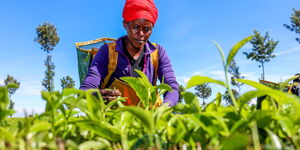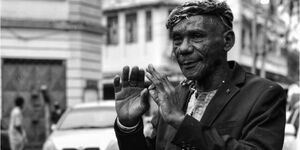Hundreds of Kenyans seeking job opportunities in Saudi Arabia have been put on high alert following a crackdown by the kingdom on illegal activities.
In the latest operation by Saudi authorities, over 50 people, including 11 women, have been arrested in what officials describe as a fight against "immoral acts."
Some of the vices the Saudi government is targeting include begging and sex work.
In a bid to curb these activities, Saudi Arabia’s Ministry of Interior has established a new special unit focused on tackling “community security and human trafficking.” This has since led to the arrest of dozens of foreign workers.
The crackdown comes at a time when an increasing number of Kenyans are moving to the Gulf in search of employment, primarily in domestic work and other semi-skilled jobs.
In recent times, some Kenyans have been duped by rogue recruitment agencies into travelling to countries like Saudi Arabia, only to find that the jobs they applied for do not exist. This plight leaves many stranded without work, forcing some to resort to begging as a means of survival—a practice now being targeted in the Gulf.
As recently as February, four expatriates were arrested by Saudi police for engaging in 'immoral acts' at a massage facility in Riyadh. A police raid in the capital also led to the arrest of three foreign women accused of engaging in sex work.
Saudi authorities have also intensified efforts to curb street begging, a practice that often involves foreigners who arrive in the country under false promises of employment.
While it remains unclear why the crackdown has gained momentum in recent months, experts believe it could partly be due to the Saudi government's efforts to maintain the nation's clean image ahead of the 2034 World Cup, which Saudi Arabia is hosting.
Khalid Al-Sulaiman, a columnist for the semi-official Okaz newspaper, also believes the crackdown could be linked to the heightened social media advertising of businesses categorised as immoral in the Middle East.
By maintaining a conservative image, Saudi Arabia increases its chances of attracting lucrative foreign investment in preparation for the global tournament.
Dig deeper: Kenyans are likely to be targeted by the crackdown, especially if a recent report by the National Employment Authority (NEA) is anything to go by.
According to the report, the government has facilitated the immigration of more than 200,000 workers abroad since 2024, with Saudi Arabia being the largest recipient of the workers in that time with at least 194,320 placements.












